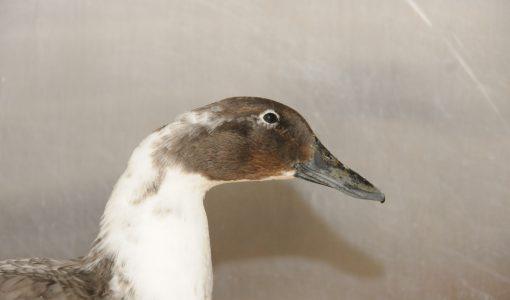-
About
- Leadership & Faculty
- News & Events
-
Academics
- Graduate
- Advanced Clinical Training
- Continuing Education
- Academic Departments
- Academic Offices
- Simulation Experiences
-
Student Life
- Offices
-
Research
-
Hospitals & Clinics
- Emergency Care
- Hospital Services
-
Community Outreach
- Volunteer
Don’t Feed Snacks to the Ducks and Geese!
Tufts Veterinary Specialists Caution on Danger of Feeding Inappropriate Snacks to Ducks and Geese Ms. Cindy Thomas-Griffith, a long-standing client, has been ...

Tufts Veterinary Specialists Caution on Danger of Feeding Inappropriate Snacks to Ducks and Geese
Ms. Cindy Thomas-Griffith, a long-standing client, has been receiving her veterinary care at Cummings Veterinary Medical Center for more than 25 years. With an array of companion animals, large and small, Ms. Thomas-Griffith is no stranger to the diverse services available at Cummings School. She also volunteers at Tufts Wildlife Center, and that is where this story begins.
A critically-injured duck, presumably hit by a car, and thought to be a mallard, was found and brought to Tufts Wildlife Clinic by a good Samaritan seeking help. Given expert care and time to heal, this domestic Rouen duck recovered and needed a permanent home. Having grown quite fond of him during her volunteer efforts, Ms. Thomas-Griffith adopted “this fabulous duck” and named him Henri Amaduckeus.
Months later, when a domestic goose appearing to be injured wandered up his driveway, a Worcester resident recognized it needed help and brought him to Foster Hospital for Small Animals. The goose (who Thomas-Griffith would later name Goosestav) was evaluated by the Emergency and Critical Care staff and diagnosed with angel wing syndrome, a condition that afflicts waterfowl and is caused by eating an unbalanced high-carb, high-protein diet. Goosestav was admitted to the hospital and subsequently transferred to the Zoological Companion Animal Service (ZCAM) for specialized treatment.
“This is a very preventable condition,” said Jennifer Graham, D.V.M., DABVP, DACZM. “A diet of human-fed bread makes the flight feathers grow too quickly for their soft bones to support and the feathers become twisted away from the body at a 90-degree angle,” she continued. Fortunately, in young geese, the condition can hopefully be reversed by taping the wings in place for a couple of weeks. Dr. Graham explained that when diagnosed as adults, the damage is irreversible.
Domestic geese and ducks require feeding of a proper diet, whereas their wild counterparts are scavengers and have no trouble finding food on their own. A dependence on humans for food by wild waterfowl can lead to reliance, disease, and malnutrition.
Anticipating Goosestav’s full recovery and with hopes for finding him a home, Dr. Graham had an idea. Ms. Thomas-Griffith had been looking for a companion for Henri Amaduckeus. He did not socialize well with other ducks and Dr. Graham felt a goose might be a better match. Coincidentally, Amaduckeus was scheduled to see Dr. Graham for a follow-up exam later that day. With an arranged “meet and greet,” Goosestav and Henri Amaduckeus’s future together looked promising.
Goosestav now resides at the Thomas-Griffith home and is inseparable from Henri Amaduckeus. Goosestav’s prognosis is excellent thanks to the early intervention and the expertise of Foster Hospital’s veterinary team. Dr. Graham cannot stress enough the importance of spreading the word to the public about the dangers of feeding inappropriate snacks to ducks and geese. It is not only life-altering, but it can be life-threatening to the animal.
According to Ms. Thomas-Griffith, this is a story with a bright future. “It is because of the kindness and concern of good Samaritans and the expert and compassionate care Goosestav and Henri Amaduckeus received at Cummings School, that these boys are living happily together. I continue to seek veterinary care for all of our companion animals because of the genuine compassion and kindness, along with incredible care that I have received at Cummings School of Veterinary Medicine. I am most grateful for this care and I consider them part of my extended family.”